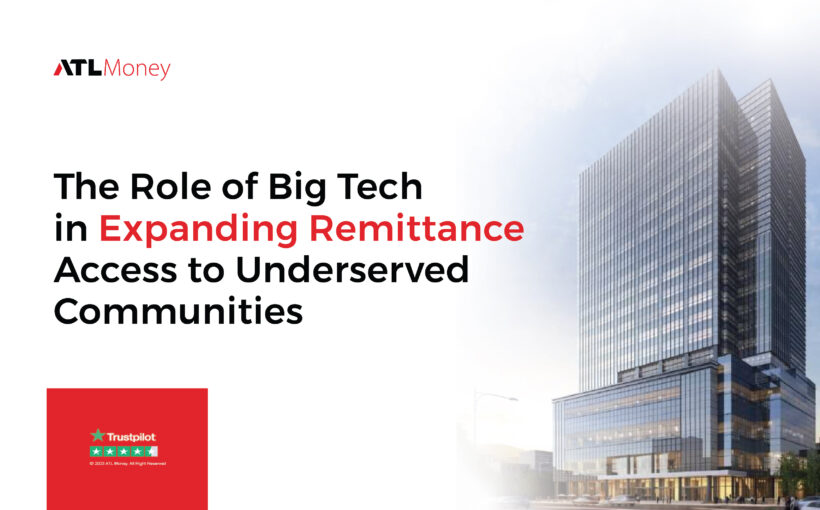Big Tech companies have been pivotal in reshaping various industries, and their influence on the realm of finance, particularly in expanding remittance access to underserved communities, cannot be overstated.
In this modern era, where technology is an enabler for financial inclusion, Big Tech has played a crucial role in leveraging innovative solutions to bridge the gap and provide remittance services to communities that have traditionally been underserved.
Harnessing Digital Platforms for Accessibility
Big Tech companies have harnessed the power of digital platforms to create accessibility for individuals and communities previously overlooked by traditional financial institutions. Through mobile applications, online interfaces, and digital wallets, they have made it easier for people to send and receive money, often reaching those in remote or underbanked areas. This shift has transformed the remittance landscape by offering a more inclusive approach to financial services.
Facilitating Low-Cost and Efficient Transactions
The influence of Big Tech has driven a wave of innovation, leading to low-cost and efficient remittance solutions. By optimizing digital infrastructure and streamlining processes, these companies have managed to reduce fees and enhance transaction speed, thereby benefitting individuals who rely on these remittance services as a lifeline for their families. The cost savings translate to more funds reaching the intended recipients, making a tangible impact on the financial well-being of underserved communities.
Embracing Data-Driven Insights for Tailored Solutions
Utilizing their vast repositories of data, Big Tech companies have been able to gain insights into the specific needs of underserved communities. By understanding transaction patterns, economic behavior, and regional nuances, they’ve been able to tailor their services to better meet the requirements of these communities. This data-driven approach has led to the development of more relevant and impactful remittance solutions, thus empowering individuals economically.
Overcoming Regulatory Barriers Through Innovation
In many regions, especially those with stringent financial regulations, remittance services have historically faced roadblocks. Big Tech companies have invested in creating innovative regulatory-compliant frameworks, sometimes integrating blockchain technology, to navigate these challenges. By doing so, they have paved the way for smoother and more transparent cross-border transactions, ultimately providing a safer and more reliable platform for underserved communities to engage in remittance activities.
Cultivating Partnerships for Lasting Impact
One notable aspect of the role played by Big Tech in expanding remittance access is its commitment to forging partnerships with local financial institutions, non-governmental organizations, and other key stakeholders. These collaborations have fostered a more cooperative and community-centric approach to delivering remittance services. The result has been the establishment of networks that ensure a wider outreach and a more sustainable impact on underserved communities.
The commitment of ATLMoney to financial inclusion has led to the broadening of remittance access to various underserved communities. Through our innovative digital platforms and strategic partnerships, we continue to provide low-cost, efficient, and personalized solutions, facilitating seamless cross-border transactions for individuals across the globe.
*Empower your global financial connections. Send money abroad easily with ATLMoney.*
